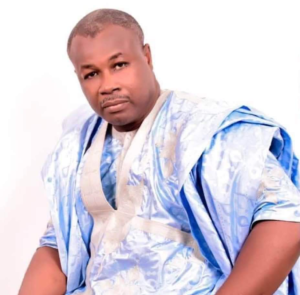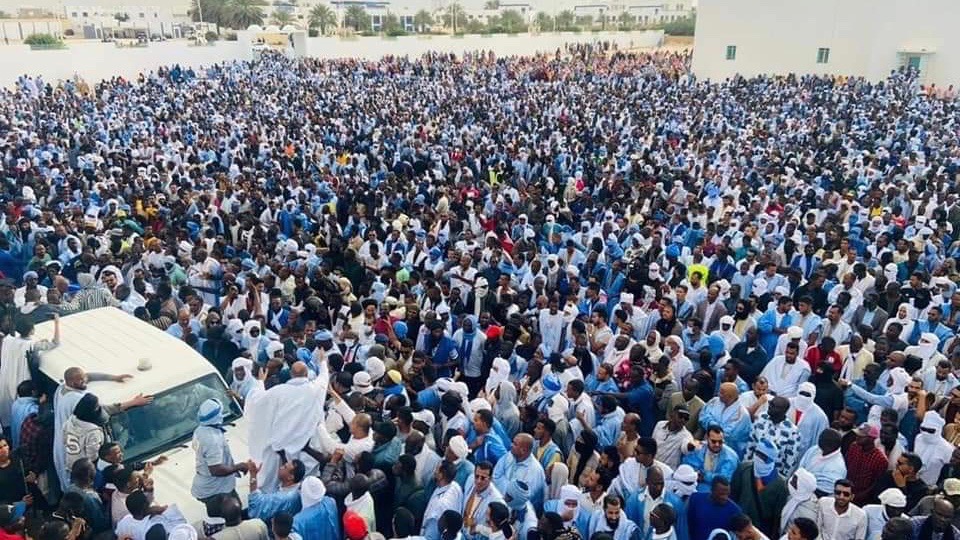The killing of a human rights activist in police custody has sparked protests and outrage across Mauritania, as progressive social movements have condemned what they term foul play on the part of the authorities.
On the night of February 9, 38-year-old Souvi Ould Jibril Ould Cheine was detained by police and taken to the Number 2 police station in Dar Al-Naim, located in the suburbs of Nouakchott, in the Nouakchott-Nord region. Hours later, Souvi was pronounced dead at a hospital. Speaking to Peoples Dispatch, Haja Lehoueij, a close friend of Souvi and a member of the We Can movement in Mauritania, stated that his body bore visible signs of torture.
Following days of protests, on Monday, February 20, the Public Prosecutor’s Office of Nouakchott-Nord announced charges against eight people, including senior police personnel. Four people, including the police commissioner of Dar Al-Naim’s Number 2 police station, have been charged with premeditated murder, torture leading to death, ordering and carrying out an “aggressive, arbitrary act affecting the personal freedom of an individual,” using violence without a legitimate reason, and obliterating the traces of a crime.
The remaining officers are facing charges including bribery, covering up a crime, and concealing evidence.
A legal representative for Souvi in this case has stated that the accused officers had confessed to receiving orders from their superiors regarding the slain activist. The legal team has also rejected the charge of premeditated murder, arguing that Souvi had been subjected to a secret and planned assassination, which is “vastly different.” The charge of assassination usually also implies a political motive.
Souvi’s killing has also been condemned by human rights organizations like the Mauritanian Association for Human Rights and the African Commission on Human and Peoples’ Rights.
“They brought him in like an animal”
In a statement on February 10, the Mauritanian General Directorate of National Security claimed that Souvi had died while he was being transferred to the Sheikh Zayed Hospital for treatment after he suffered a “sudden health problem during his arrest” at the police station.
“The police claimed that Souvi fell out of the police car while he was being transferred,” Haja told Peoples Dispatch.
Prior to the release of the police statement, leaked photos of Souvi’s body had begun to be circulated in the local media, with visible traces of blood on his face. “His family and the nurses who had examined his body in the hospital stated that the signs of torture on his body were clear. There were marks of handcuffs on his hands and legs, and he had burn marks on his face from electricity shocks,” Haja said. “The police brought him to the hospital like an animal, threw him there, and left.”
Amid growing protests against the killing, “this kind of manipulation by the authorities was like adding gasoline to fire. People were striking in front of the police station where Souvi was murdered, and guarding his body against any interference,” Haja said. Souvi’s family refused to receive his body, and demanded a proper autopsy.
On the night of February 11, the Public Prosecutor of Nouakchott-Nord, Judge Mohamed El-Amine Barry, announced that the preliminary results of an autopsy conducted by a special medical team suggested that Souvi had suffered two fractures to the vertebrae in his neck, and that his death had been caused by strangulation.
The autopsy report released later concluded that Souvi might have died due to suffocation. His family initially rejected the autopsy results. Meanwhile, protests broke out in the capital of Nouakchott, with some people burning tires and attacking cars and shops.
“In the same night, the people from the government visited the family, and after that, Souvi’s brother called on the people to go back to their homes, to call off the protests. He stated that he had not understood the autopsy report at first,” Haja said.
“Souvi’s brother said that the autopsy was serving the main cause—which is to bring justice to Souvi.” However, activists fear that the family may have been manipulated by the government.
Meanwhile, documents released from the Number 2 police station indicated that Souvi had experienced “physical exhaustion,” which contradicts both the medical report and the initial report published by the Mauritanian National Police.
Activists have also highlighted that Souvi did not live under the territorial jurisdiction of the police station to where he was summoned.
Moreover, the police had claimed that Souvi was arrested following a referral from the Public Prosecution in a complaint filed against him by a citizen over alleged debt. He had been detained due to absence of a guarantor, the initial statement had claimed.
However, according to Haja, matters related to defraudation or loans are not under the purview of the police or the Department of National Security. Instead, these are overseen and arbitrated by the justice system. Even if the police do detain an individual, it is at the direction of a judge, and the person in question has to be presented before the judge and not taken to a police station, she said.
‘The voice of the people’
“Souvi was known as the voice of the people,” Haja said. In a country still marked by severe stratification, discrimination, and disparities in terms of access to education, health care, land, employment, and housing, “he was fighting for equality between Black people and white people in Mauritania.”
She added that Souvi also emphasized unity, to fight against those seeking to serve their own interests by sowing divisions among the people.
“If people want to strike against the government, be it on issues of corruption or hunger, if the government can feel an awakening among the people, a powerful movement that might change the situation on the ground, they use issues of race. This is what Souvi said, it was a winning card for the corrupt, to divide people.”

Throughout his activism, Haja stated, Souvi had not said anything against the government. However, he had recently spoken up against the head of the country’s security department, which has fueled speculations about why he was killed, especially given that he was killed in a police station.
According to Haja, “Souvi had spoken in the media about the head of the country’s department of national security, General Misgharou Ould Ghoueizi, and his son Mokhtar—who is known to be engaged in criminal activities in Mauritania, but has not faced charges, given his father’s influence. He was facing charges of rape in Spain, however, since his father is very powerful, he was brought to Mauritania to face charges. However, he was never charged and has never been arrested.”
“Suddenly his father wanted to have him [Mokhtar] elected to the parliament. Souvi spoke out against this—a person who is facing criminal charges should not be a part of the parliament or anything related to the government, and to proceed with this would be a misuse of power by Mokhtar’s father.”
As calls for justice for Souvi continue in Mauritania, the We Can Movement has also demanded the removal of General Misgharou Ould Ghoueizi, “even if an investigation reveals that he had no connection to Souvi’s murder,” Haja said.
“If he wasn’t corrupt, nothing like this would have happened. If he was doing his job, the police would not be killing people. Souvi was not the first victim. Justice must be brought to him and his family, but also to the people of Mauritania.”
“Justice must also be ensured for our comrades who were tortured during the protests and are still in the hospital.”
While Souvi’s killing has created concern among social movements, Haja said, “We have the strength to fight for our freedoms and our rights. The country belongs to the people, not the government. Souvi spoke about people being united and together in Mauritania. In his funeral the people were united, in the strikes against the government we were united. Souvi succeeded in doing what he wanted to do when he was alive.”





